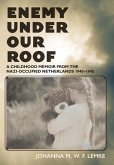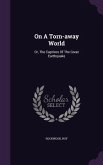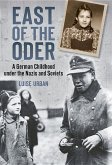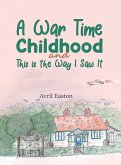Angela's mother was a secret agent for the American military government. WWII was over, Angela was five, but vividly remembers her family's flight from the Russian army and wandering "like stray dogs" for nine months. Earlier, to reunite the family, Angela's grandfather had hiked the Ural Mountains alone in winter and navigated the Volga River disguised as a Russian Orthodox priest, all the while winning money by playing cards with three ordained priests. Settling on the outskirts of Stuttgart, the family housed fourteen refugees in a one-bedroom apartment. Each of these personalities is seen against the historical background of post-war Allied atrocities against German citizens, conveniently omitted from the "official" history texts (Eisenhower death camps and engineered famine). Among these refuges were: ~ A fifteen-year old holocaust survivor ~ A sixteen-year old musician, a "Swing Kid," who fought against Hitler ~ A writer who knew too much and had to be concealed ~ An elderly couple from Silesia, part of post-war forced migration, perhaps the single greatest movement of population in human history ~ An unwed mother, kicked out by her village, who enlists Angela to raid farmers' fields at night for food Other prominent persons: ~ An outwardly ordinary shepherd who taught Angela to meditate, helping her through her war experiences and adding spiritual dimensions to her life ~ Albrecht Leo Merz, senator, architect, artist-teacher, and founder of the Merz Schule, which was designated as a "model school" by UNESCO ~ A streetcar driver who spoke only in classical rhymes ~ Viemsie, a black market contact, for whom Angela and her best friend collected cigarette butts and raided American garbage cans There was never enough food, but life was diverse and culturally rich. It ends when Angela's mother announces that she and her two girls will immigrate to the U.S.A., leaving all they love behind.








